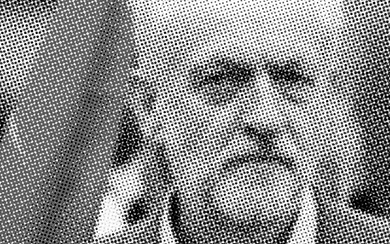Better way for Scotland and Britain
- Following consultation with the senior members of the respective parties (Tommy Kane, Bill Ramsay) on our editorial committee, we set the two sets of leadership contenders a set of questions to answer. Readers will be able to form their own views on to what extent and how well each candidate answered these questions. The questions are reproduced where they were answered on a question-by-question basis.
I stand in this leadership election saying that there is a different way, a better way, of organising our economy – one that can create decent well-paid jobs which improve living standards. We need to challenge not just austerity but the failed economic model that has undermined treasured public services and created a more unequal and more brutal society.
Over the past thirty odd years, there has been a flawed consensus that has submitted to market rules rather than those of democratic government. My leadership is challenging that consensus, aiming to redistribute wealth and power in order to transform our society so that no one, and nowhere, is left behind.
I understand, and fully support, devolution. It has deepened our democracy and it is absolutely right that the responsibilities and powers to take decisions about Scotland’s future should lie with the Scottish people and the Scottish Parliament. I have laid out an ambitious programme for democratic reform across the whole of Britain since I believe that we can achieve so much more once ordinary people are given an effective voice.
It’s Labour’s commitment to making that difference that means that while we will welcome support for all or any of our policies from any other political groups or parties we are not looking for an alliance with the SNP. I’ve always been willing to work with others where I can because that’s how change happens. But I’m well aware that Labour and the SNP come from different traditions and have different goals. The SNP’s purpose is to achieve independence. Labour’s purpose has always been to shift the balance of power and wealth in favour of working people.
I stand, on an unashamedly anti-austerity platform. I want to see a Labour government applying progressive taxation policies and tackling the scandalously aggressive and systematic tax avoidance and tax evasion that exists and scars our country. As well as this, Scotland as much as the rest of Britain,, needs an active industrial policy to grow our economy and increase our tax receipts. This will close the deficit created by the Tories and help provide the resources that Scotland needs to invest in its people.
Our £500bn investment commitment means at least a £23bn investment boost for Scotland, doubling the current level of investment expenditure over a decade. This will involve support for those areas where we know the future potential, particularly in Scotland, is so great, like renewables and advanced manufacturing.
I fully support Scottish Labour’s plans to accelerate the transition to a low-carbon economy, and drive the expansion of the green industries and the green jobs of the future. The Scottish National Bank will help provide the means to drive that expansion. We will expand community renewables and build in democratic control of our energy sector.
Promoting public ownership and control of our energy stands proudly alongside the vision of Tom Johnston who helped create the publicly owned North of Scotland Hydro-Electric Board that sought to harness Scotland’s natural resources to generate affordable and publicly controlled energy.
We will build a new generation of council housing in Scotland, addressing the pressing need for housing by committing to building at least 60,000 council houses.
We will create a Scottish National Bank, under Scottish control and backed by the National Investment Bank, with £20bn of lending power to deliver the funds to local projects and Scotland’s small businesses. Just 8% of lending to small businesses in Britain goes to Scotland, compared to one-third that goes to London and the south-east. The Scottish National Bank will redress that imbalance and unlock the potential of Scotland’s small businesses.
Austerity was always a political choice, not an economic necessity. The Conservatives’ targets for reducing the government deficit were always determined by their political choices, not by the needs of the economy. Labour’s alternative will, instead, make sure the proceeds of growth are more fairly distributed. These economic policies will pay for the anti-austerity pledges made by Scottish Labour in May as well as providing the means by which our economy and our society can be transformed. My Labour government will also seek to support, sustain and increase our investment in our public services. This will also see greater public and democratic control over the services we depend on. We will support co-ops and employee ownership and bringing back under local, public control services like local buses and railways.
I will support and help in any way I can the ability of councillors to do their job. We will increase the spending available allocated to local government. This will benefit Scotland, which like elsewhere across the country has seen austerity decimate local government funding. The outcome is 30,000 fewer Scottish local government workers with many, many more jobs under threat as the financial squeeze on local government continues. A Labour government that I lead will rectify the intolerable pressure on our vital local services and the staff who provide them.
We need to enable and promote local councils bringing bus services back under their control, and support Scottish Labour in its attempts to challenge the poor record of the SNP on bus travel. I will take train services back under public control once franchises run out, and why also I fully support the Scottish Labour manifesto commitment to create a ‘Peoples Railway’.
By returning public transport to the care of the public, we will free up the resources needed to put in place bus services across the country. For buses, that efficiency saving means at least £300m freed up to restore lost local bus routes. For railways, it is a potential 10% off rail fares across the whole country.
I have committed to a National Education Service that will deliver the best possible education to all, from the youngest to the oldest. We should consider education as we treat the National Health Service, as a valuable public good and a shared inheritance. By providing the best education system in the world, we can make sure all of our people are able to better themselves and share in future prosperity.
This investment in education will not just protect Scottish education spending but significantly increase resources available for Scottish education. How the Scottish Government and Scottish Parliament spend that additional resource is, of course, a matter for them.
Additional resources will also allow Scottish Labour to reinvest in colleges and fill the huge cut in further education presided over by the SNP. This has, as has recently been confirmed by Audit Scotland, excluded far too many Scots, particularly women from going to college.
Working with businesses and unions, we will make sure high-quality training and apprenticeships are available to all those who want to take them. We will commit to providing a system of free Universal Childcare, removing a burden that falls heaviest on women and making sure all our children have the best possible start in life.
We must tackle the insecurity that blights so many people’s lives. We will give people stronger employment rights from day one in a job. We will end exploitative zero hours contracts and create new rights at work meaning employers have to negotiate on wages, not impose them.
Key to this is our pledge that collective bargaining will be mandatory in companies with over 250 employees. We will strengthen people’s representation at work and the ability of unions to organise and giving people a real voice at work.
What I am setting out is a programme to transform Scotland and the rest of Britain. I know that it is for Scotland to decide its own priorities on how to make the spending decisions in the best interests of the people of Scotland. But, by changing the way our economic model operates, we can rebuild and transform our society so that no-one and nowhere is left behind.
Jeremy Corbyn is the Labour MP for Islington North and current leader of the Labour Party.




